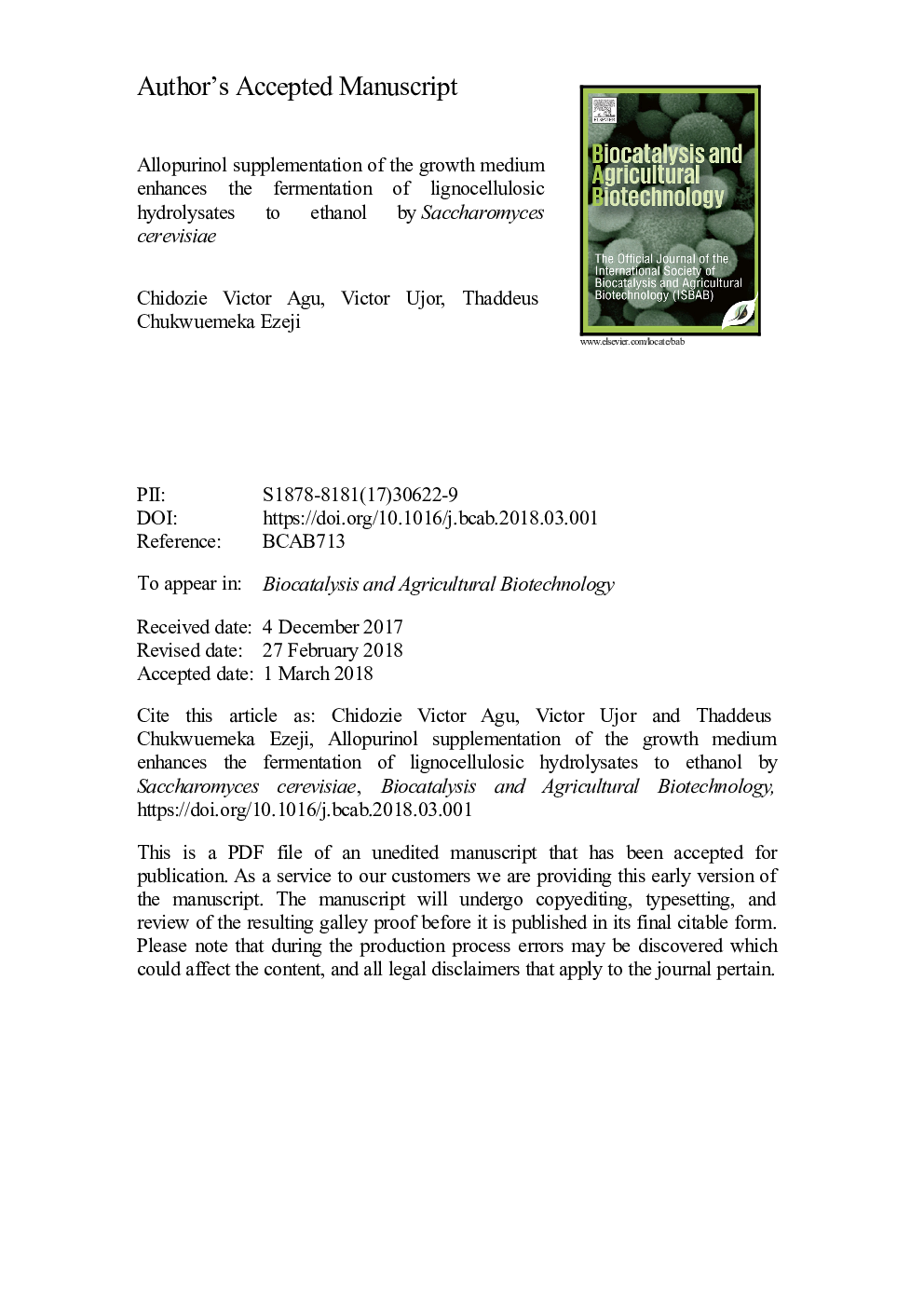| Article ID | Journal | Published Year | Pages | File Type |
|---|---|---|---|---|
| 8406102 | Biocatalysis and Agricultural Biotechnology | 2018 | 37 Pages |
Abstract
To fully harness lignocellulosic sugars as fermentation substrates for the production of biofuels and fine chemicals, the tolerance of fermenting microbes to lignocellulose-derived microbial inhibitory compounds (LDMICs) must be improved. Towards this goal, we exploited the ability of allopurinol, a xanthine dehydrogenase/oxidase inhibitor, to promote purine salvage and nucleic acid biosynthesis to alleviate LDMIC-induced DNA damage, thereby improving the LDMIC tolerance of Saccharomyces cerevisiae NRRL Y-566 during the fermentation of lignocellulosic sugars to ethanol. By supplementing LDMIC-replete wheat straw and corn stover hydrolysates (CSH) with 0.5-8â¯mM allopurinol, a concentration-dependent increase in ethanol production was observed. Also, by pulse-feeding allopurinol to a model sugar-LDMIC mixture and switching fermentation from aerobic to microaerophilic condition at the exponential growth phase of S. cerevisiae NRRL Y-566, cell growth, ethanol concentration, productivity, and yield improved by 12.0%, 53.1%, 54.0%, and 50.0%, respectively, when compared to the allopurinol-unsupplemented control. Similarly, when 100% (v/v) CSH was used as carbon source, S. cerevisiae NRRL Y-566 growth, ethanol titer, productivity, and yield increased by 19%, 21%, 20% and 24%, respectively. Additionally, allopurinol reduced the onset of stationary growth phase of S. cerevisiae by 12â¯h and extended its chronological lifespan by 16â¯h during growth in100% CSH. These results underscore the feasibility of exploiting allopurinol-mediated increase in LDMIC tolerance by S. cerevisiae for the fermentation of lignocellulosic-derived sugars to ethanol.
Related Topics
Life Sciences
Agricultural and Biological Sciences
Agricultural and Biological Sciences (General)
Authors
Chidozie Victor Agu, Victor Ujor, Thaddeus Chukwuemeka Ezeji,
